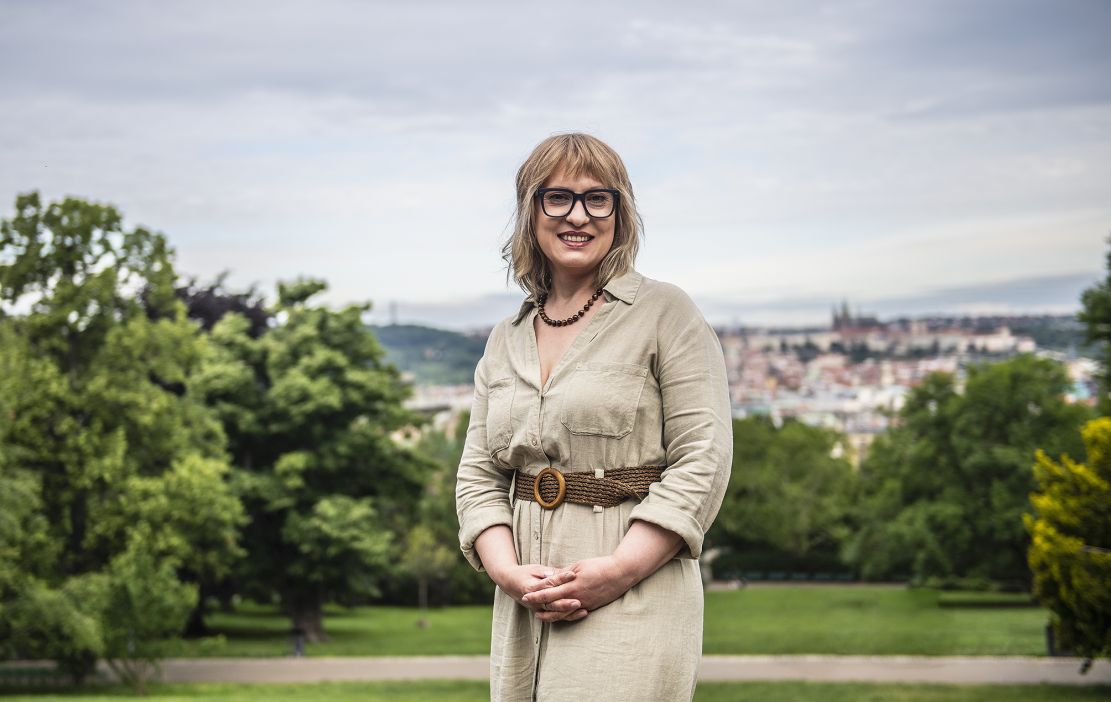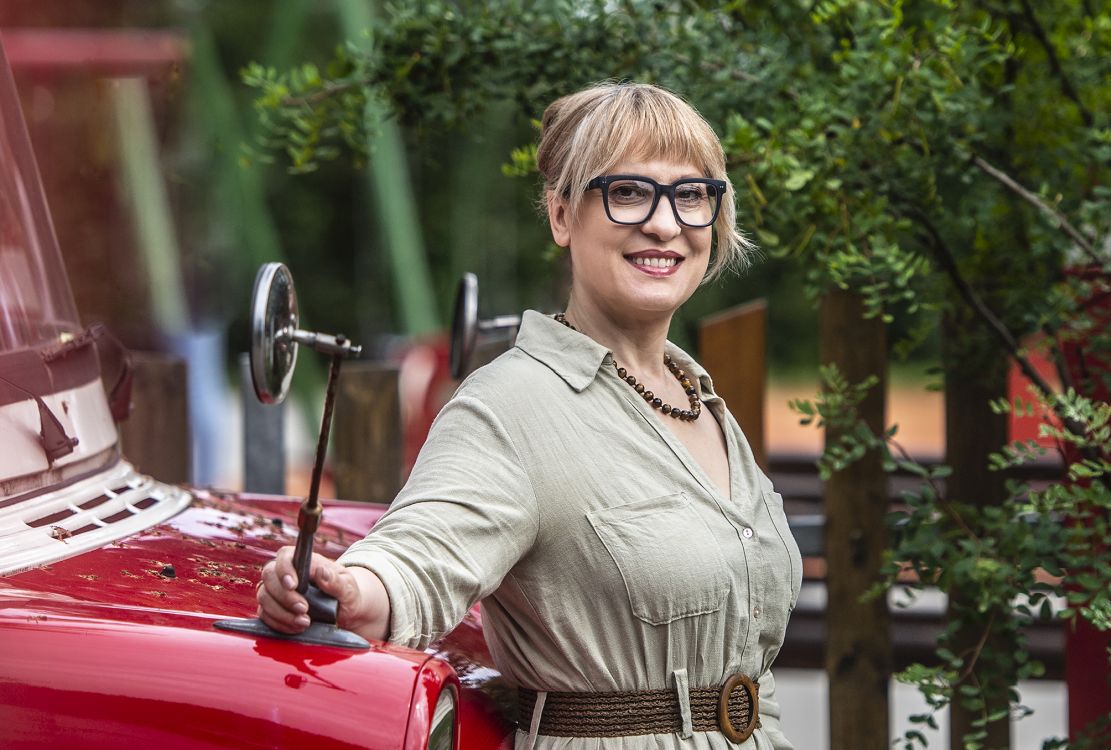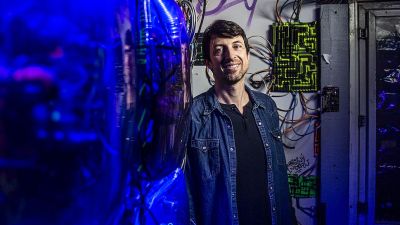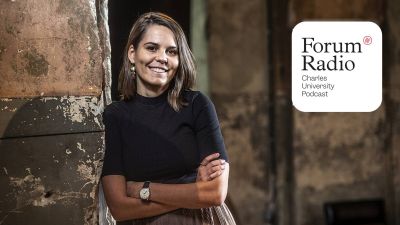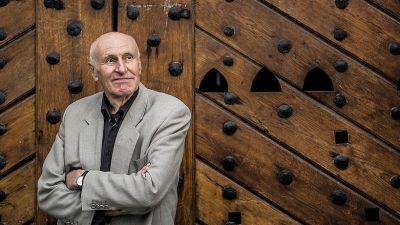The Czech-American Fulbright Commission plays a key role in fostering academic exchange and mutual understanding between the US and the Czech Republic and has done so successfully for decades. As part of the wider Fulbright Programme, it brings international scholars to Czech institutions, contributing to research, teaching, and cross-cultural dialogue. Journalist, linguist and researcher Djurdja Padejski spent the last year at Charles University and describes her experience for Forum magazine, saying that her stay in the Czech Republic was a game-changer not only for her - but also for her pre-teen - who experienced life abroad for the first time.
Here's how things came together. Djurdja Padejski in her own words:
My Fulbright fellowship had roots in a paper by Professor Masako Fidler of Brown University and Professor Václav Cvrček of Charles University. I was deeply impressed by their innovative approach to quantitative methods in corpus linguistics. As it turns out, Professor Cvrček—now my host at the Czech National Corpus—was once a Fulbright fellow at Brown himself. Also, my mentor at my home institution, Professor Danko Šipka, is a Fulbright fellow himself. In a way, this fellowship is part of a Fulbright loop that keeps spinning and keeps moving forward.
Prior to that, Charles University, to me, was the place where Roman Jakobson helped integrate linguistic theory into Slavic philology, literary studies, and anthropology—and also a first stop on the journey to the United States for my birth-countryman Nikola Tesla. Thanks to Professor Cvrček’s work, I discovered that Charles University is much more: first and foremost, it is the home of world-class Slavic linguistic studies.
In my work, I focus on three languages—Serbian, Russian, and English—and while the natural progression would have been to conduct a fellowship in Russia, the war against Ukraine shifted my path. Instead, I chose to deepen my methodological expertise in ways that can be applied across Slavic languages. I also began studying Czech, making this location an ideal fit. My project explores Russian propaganda narratives in the Czech Parliament, analysing how such narratives carry into media and public discourse. Many of these narratives are aimed at inciting hostility toward Ukraine, often using standard anti-refugee tropes. Living in Prague has provided a unique vantage point—not just as a researcher, but as someone actively witnessing how these messages attempt to distort perceptions of Ukrainian refugees.
At the same time, my son and I have been fortunate to interact with members of the Ukrainian community here, and we've been deeply inspired by the extraordinary efforts the Czech government and Czech society have made to support displaced people. This human context has added layers of urgency and ethical responsibility to my work. Though it’s still early, our advanced keyword analysis may be on the verge of revealing some meaningful methodological insights. I hope to share results in the coming months.
The intellectual environment here has profoundly shaped how I think. It has already enhanced my work on other projects. My interactions with scholars at Charles University—especially those focused on Russian studies and propaganda—have been invaluable.
On a personal note, I brought my 11-year-old son with me to Prague, and the experience has been life-changing for him. I wanted him to experience Central European life and develop a personal appreciation for social solidarity—something reflected here in both small and significant ways. He’s become an admirer of Prague’s public transportation, theaters, and parks (we live near Riegrovy Sady in Vinohrady), less processed food, and the slower pace of life. From a typical American child who needed to be driven to every activity or playdate, he has become a walker and a confident navigator of European cities.
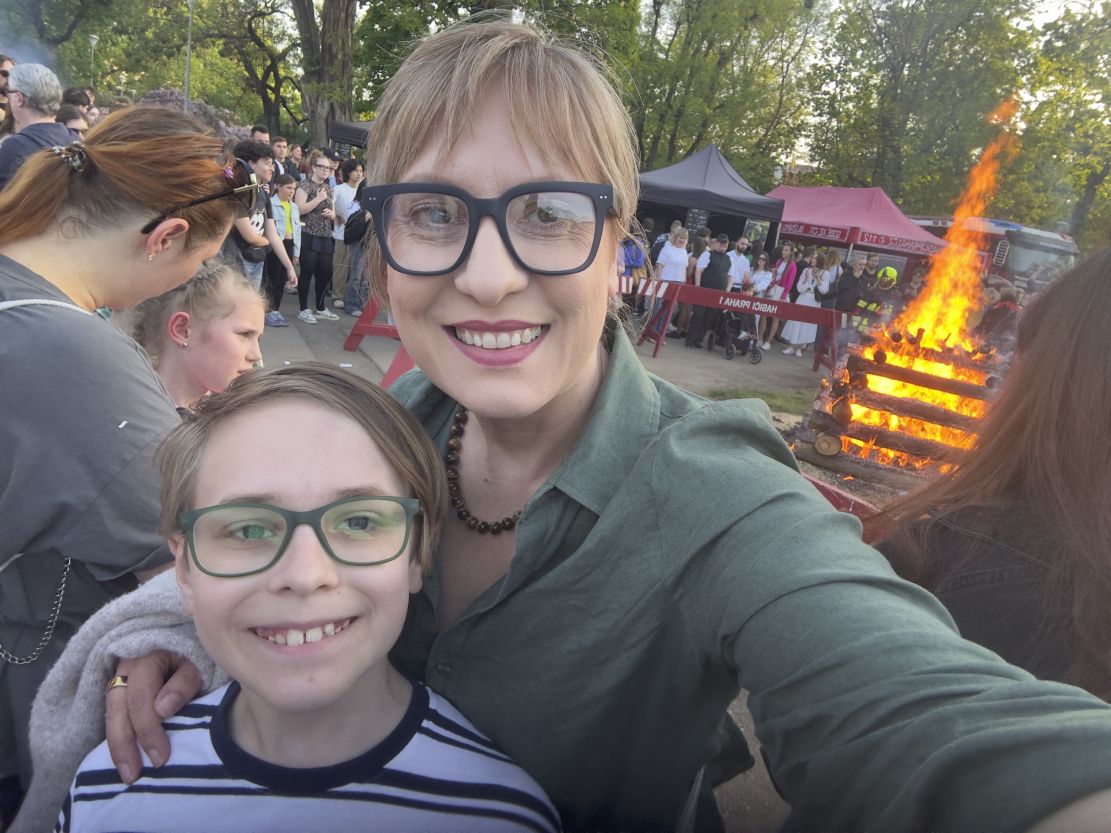

Together at the Burning of the Witches (Čarodějnice) celebration, an old Czech tradition marking the arrival of spring and the symbolic warding
off of evil. In the recording studio with singing teacher, Bea Sav.
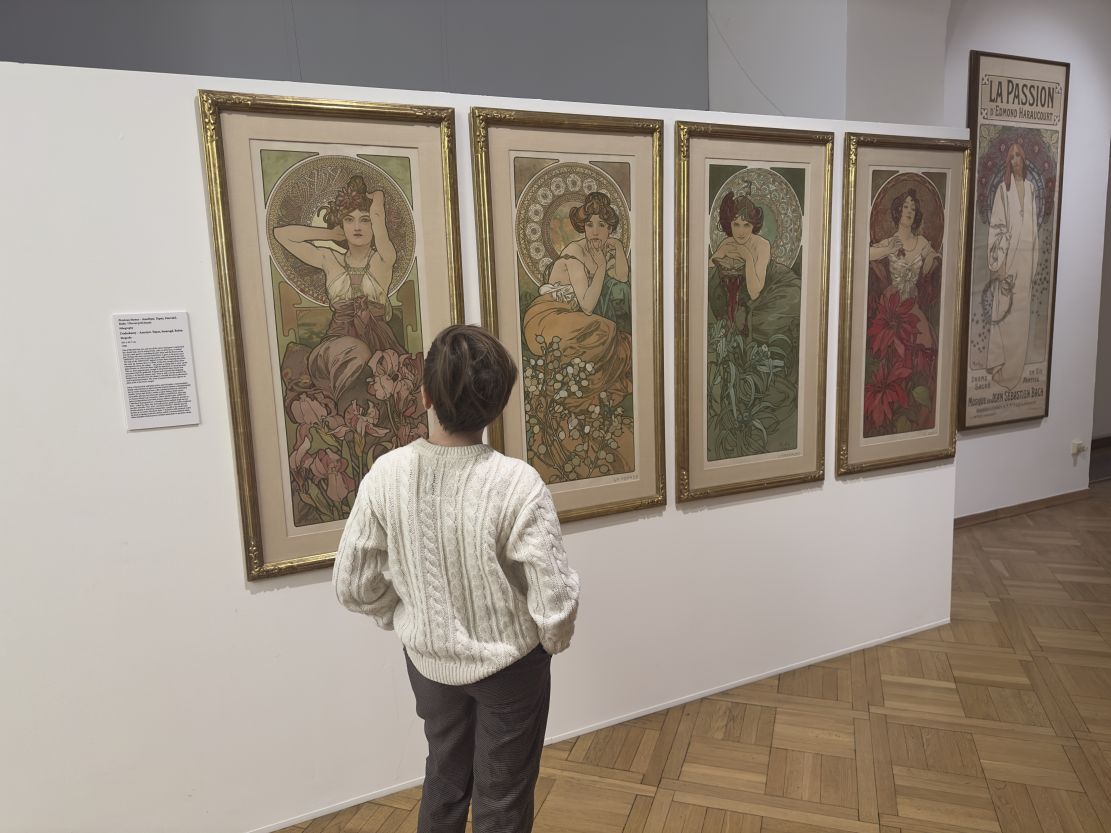
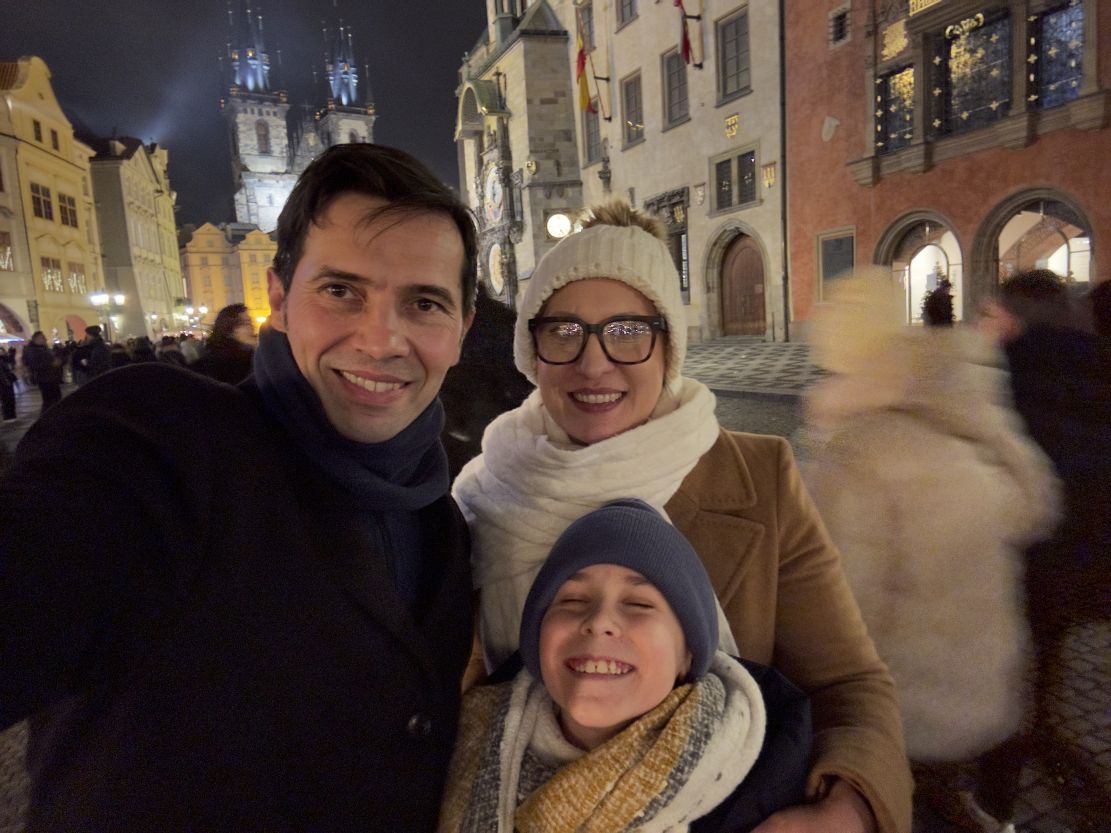
At the Mucha Museum in Prague. Djordje, Djurdja and their 11-year-old son, Nicholas, in Prague during the holidays.
In the US, we talk a lot about wellness, but often frame it as an individual pursuit. I believe it’s crucial to recognise that fundamental wellbeing is rooted in collective action: accessible public transport, universal medical care, public education, and other forms of solidarity. While individualist cultures offer important freedoms—especially for women—they can also be isolating, often leaving behind the most vulnerable and denying us more natural routes to wellness: walkable cities, good quality ingredients, regulated pharmaceuticals, accessible healthcare, and—just as importantly—an affordable culture. I wanted my son to experience all this. Teaching undergraduates at Arizona State University, I’ve seen how hard it can be for them to imagine what socially just, everyday life looks and feels like elsewhere.
When we leave in June, I know my son’s heart will be torn. He’ll be happy to return home, but Prague will always be a second home. He’s made meaningful friendships—some of which I believe will outlast his childhood. He also took singing lessons with the wonderful Bea Sav, performed live, and experienced studio recording—truly a life-changing moment that marks his own Fulbright story. I know he’ll carry a deep connection to Czech culture (rohlík forever!) wherever he goes.
My husband's support, though from a distance, was essential throughout this journey. His inability to join us due to his professional obligations at Stanford University added a layer of complexity to the experience, making it both a profound challenge and a period of personal growth for me and my son. Also, my daughter took up on herself to take care of my dog so I can come to Prague. For me, this fellowship has not only expanded my academic perspective but also given my son and me a life chapter we will carry with us forever—one grounded in learning, solidarity, and connection.
| Djurdja Jovanović Padejski |
| Djurdja Jovanović Padejski is a Fulbright scholar and interdisciplinary researcher specialising in environmental discourse, propaganda narratives, and the intersection of media, language, and technology. She is completing her Fulbright Fellowship in the Czech Republic and is in the final stage of her PhD in Comparative Culture and Languages at ASU's School of International Letters and Cultures, where she focuses on corpus-assisted discourse analysis and quantitative linguistics. Her research explores the relationship between language, power, and propaganda. |
